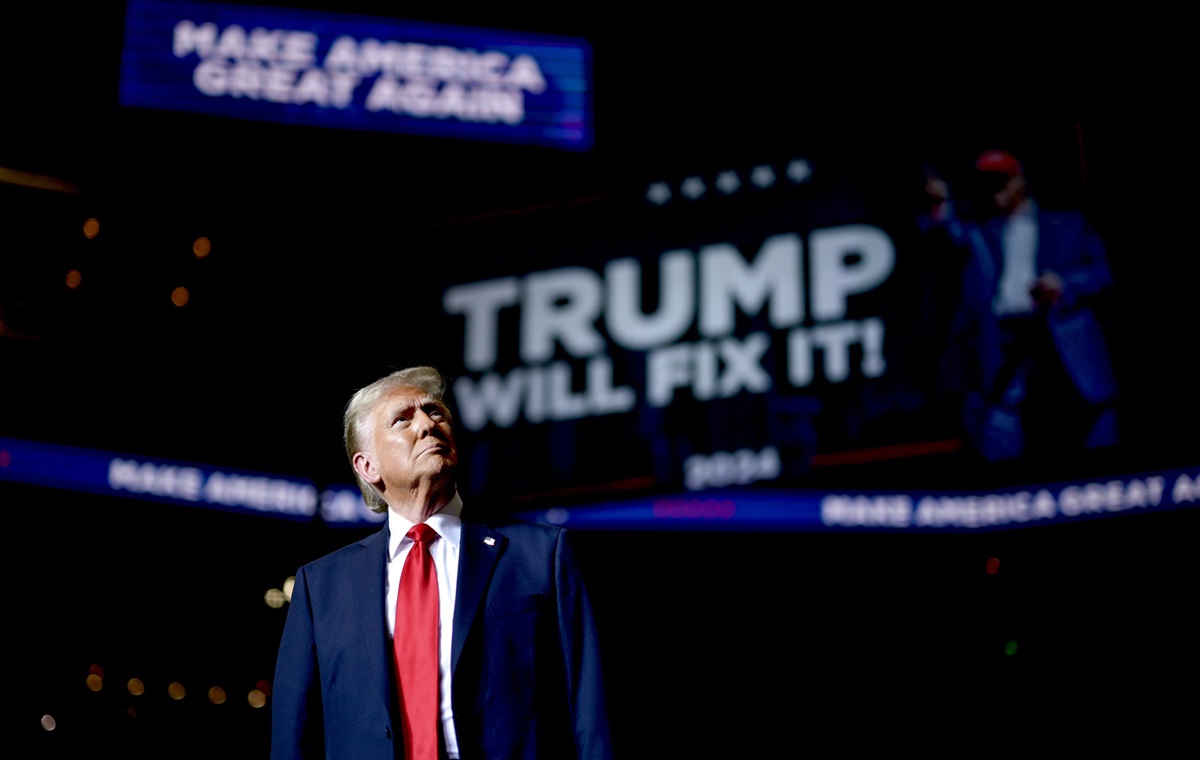Asia's reactions (and expectations) following Trump's re-election
No comment has come from Beijing except to say that the US vote was "an internal matter". The presidents of South Korea and the Philippines hope for the tycoon's "strong leadership" in the Pacific. Former Cambodian Prime Minister Hun Sen (who got his son to replace him) ventures into reflections on American democracy. India's Modi calls for the two countries to work together for global stability and prosperity. Back in the US, the "Samosa caucus" in Congress has expanded.
Milan (AsiaNews/Agencies) – Like the rest of the world, Asia is currently wondering about the possible repercussions of Donald Trump's re-election to the presidency.
Issues touching relations between the two shores of the Pacific are hinted at in the same congratulatory messages many local leaders sent to the president-elect of the United States.
As is customary, China did not issue any official reaction to Trump's election. “The US presidential election is an internal affair of the United States,” said Foreign Ministry spokesperson Mao Ning in a brief statement. “We respect the choice of the American people," she added.
Nothing was said about the possibility that Trump could speed up the trade war with the People's Republic of China during his new term in office.
During the election campaign, the tycoon said that "tariff" is "the most beautiful word in the dictionary", pledging to raise current duties on Chinese imports by 60 per cent and adding 10 to 20 per cent on all foreign goods entering the United States. Asked about it, Ms Mao said, “we do not answer hypothetical questions.”
By contrast, Taiwanese President Lai Ching-te immediately congratulated Trump. “Sincere congratulations to President-elect @realDonaldTrump on your victory. I'm confident that the longstanding #Taiwan-#US partnership, built on shared values & interests, will continue to serve as a cornerstone for regional stability & lead to greater prosperity for us all.”
In another geopolitical hotspot, the President of South Korea, Yoon Suk Yeol, was also complimentary. “Under your strong leadership, the future of the ROK-U.S. alliance and America will shine brighter. Look forward to working closely with you,” Yoon posted on X.
Philippine President Ferdinand Marcos Jr. also praised the "strength of American values", expressing the hope that the "unshakeable alliance" between Manila and Washington will “be a force for good, blazing a path of property and amity in the region, and in both sides of the Pacific.”
One of the most singular comments on the US elections came from Cambodia’s strongman, former Prime Minister Hun Sen, and current president of the Cambodian Senate after relinquishing his former office to his son Hun Manet-
“American society is not ready to take women as its leaders, even though the United States is the father of gender democracy,“ Cambodian Senate leader Hun Sen said on his Facebook page. For Hun, “Trump’s victory shows that Americans love peace rather than having an outright war in Ukraine and Israel.”
Anwar Ibrahim, the Prime Minister of Malaysia, who will hold the rotating presidency of ASEAN in 2025, congratulated the president-elect, expressing hope that the United States will renew its commitment in Southeast Asia and help end the conflicts in Palestine and Ukraine.
Congratulations to "my friend Donald Trump" also came from Indian Prime Minister Narendra Modi. “As you build on the success of your previous term, I look forward to renewing our collaboration to further strengthen the India-US Comprehensive Global and Strategic Partnership,” Modi wrote on X. “Together, let’s work for the betterment of our people and to promote global peace, stability, and prosperity.”
The Indian media, meanwhile, are wondering about the repercussions for the Indian economy of Trump's victory. Indian companies, they note, hope to indirectly benefit from new opportunities in the event of an escalation in the US-China trade war.
That said, in Trump’s America First vision, India's own trade policies are a target and pressures could be put on New Delhi in sectors like digital technologies, pharmaceuticals, and textiles.
Another issue between the two countries is visas. During Trump’s first mandate, Indian companies were seriously affected by restrictions on residence permits. Since then, they hired more local staff, thus protecting themselves from future restrictions on immigration.
Another factor that will colour US-Indian relations is the growth of the so-called Samosa caucus, i.e. Members of the US Congress of Indian origin. Out of nine candidates running for the House of Representatives, as many as seven were elected, two more than in the previous legislature.
It should also be noted that Vice President-elect J. D. Vance is married to a woman of Indian origin. Usha Chilukuri, a lawyer, was born in California, daughter of Indian immigrants from Khrisna, a district in Andhra Pradesh.
26/11/2020 10:33
26/11/2020 10:33
11/11/2020 15:47







.png)










